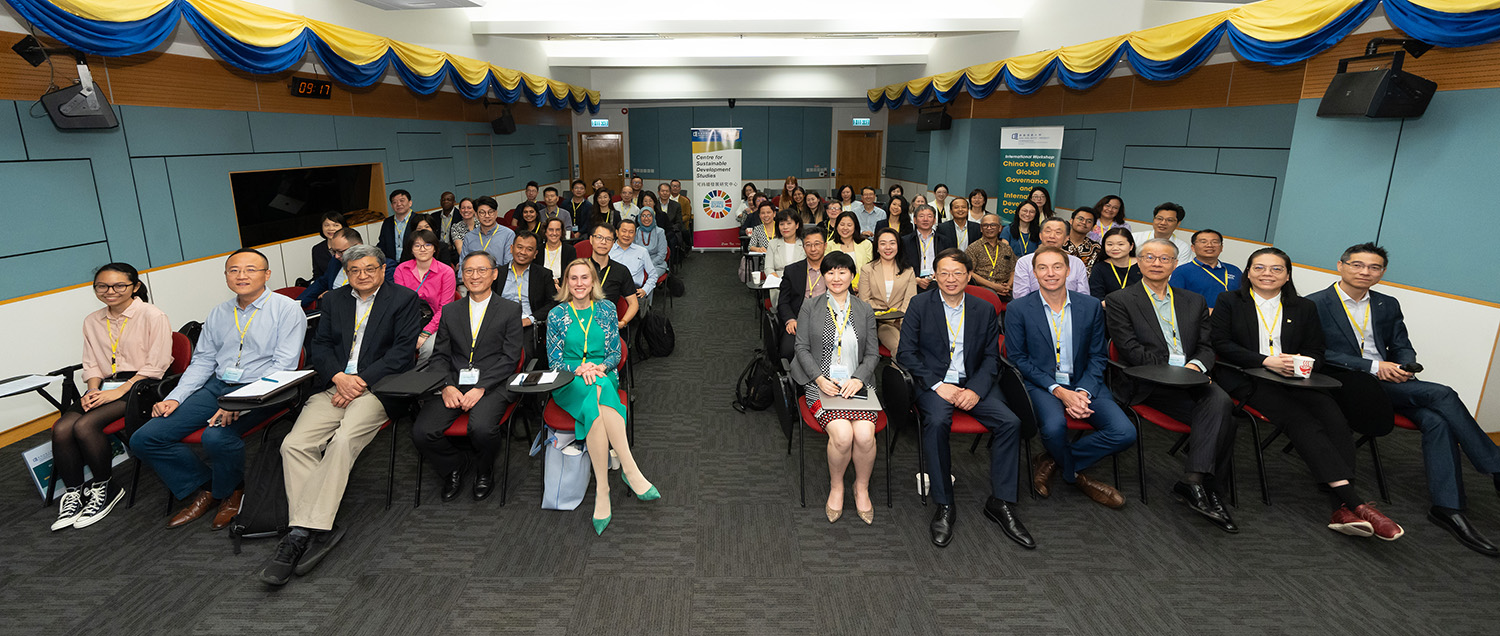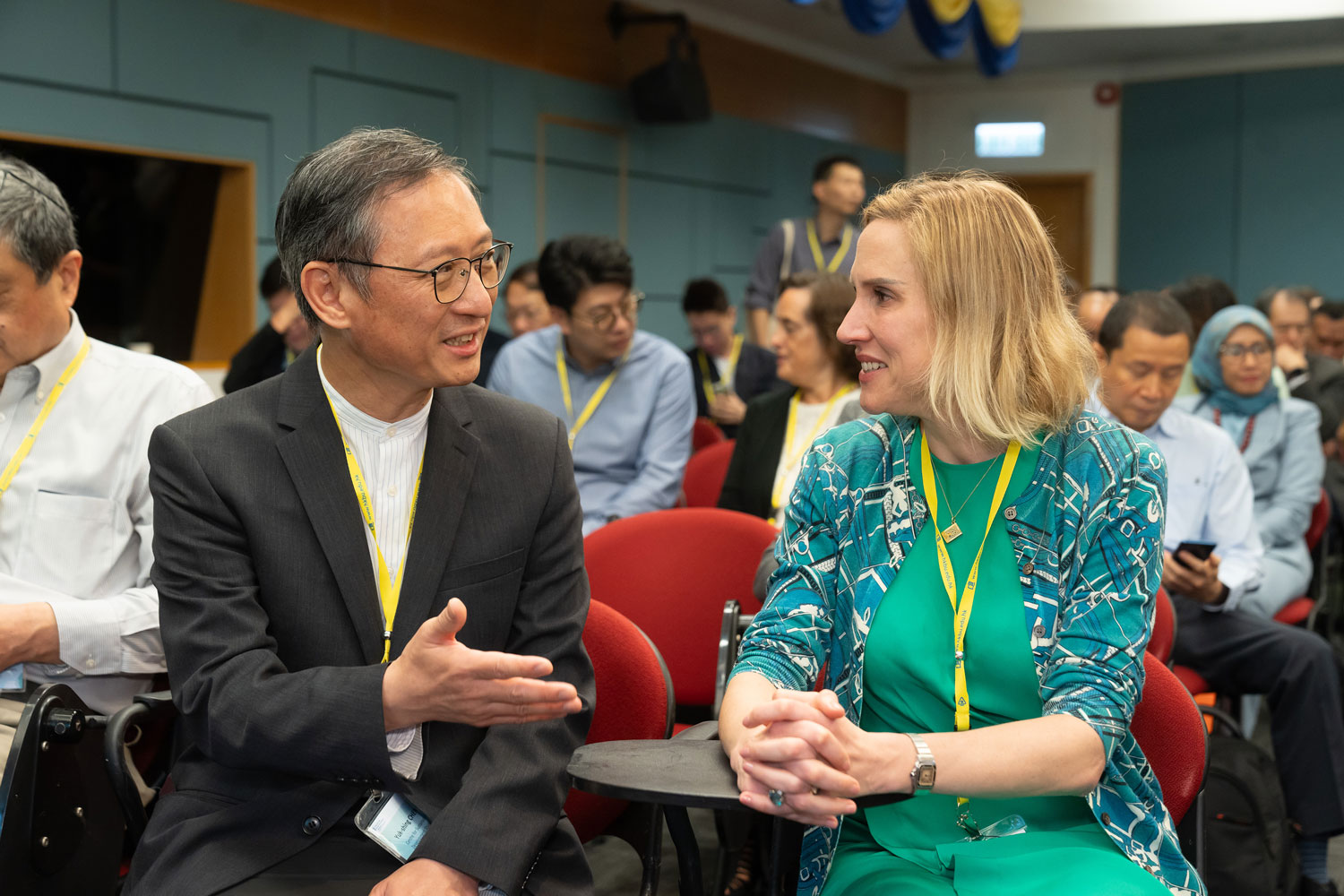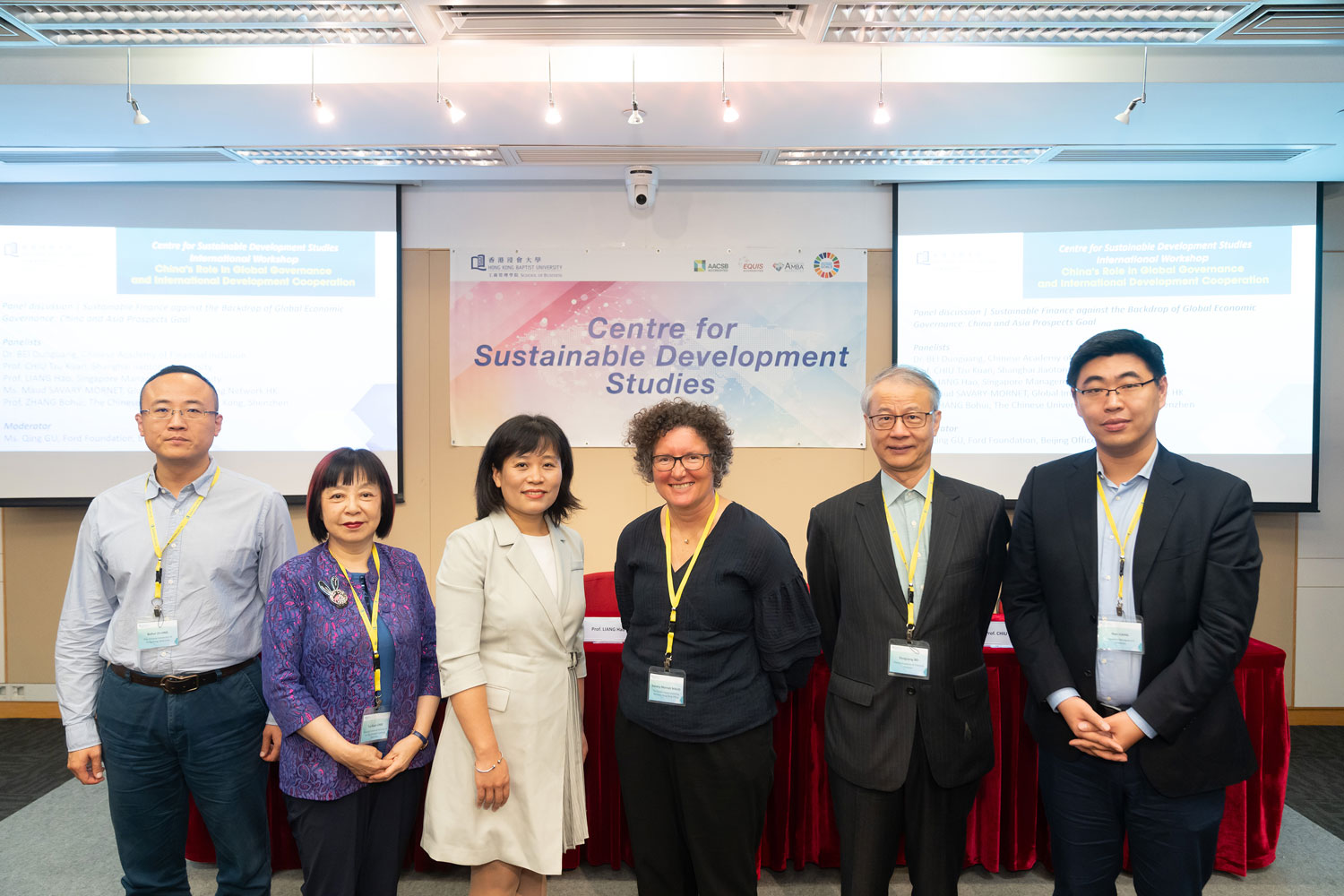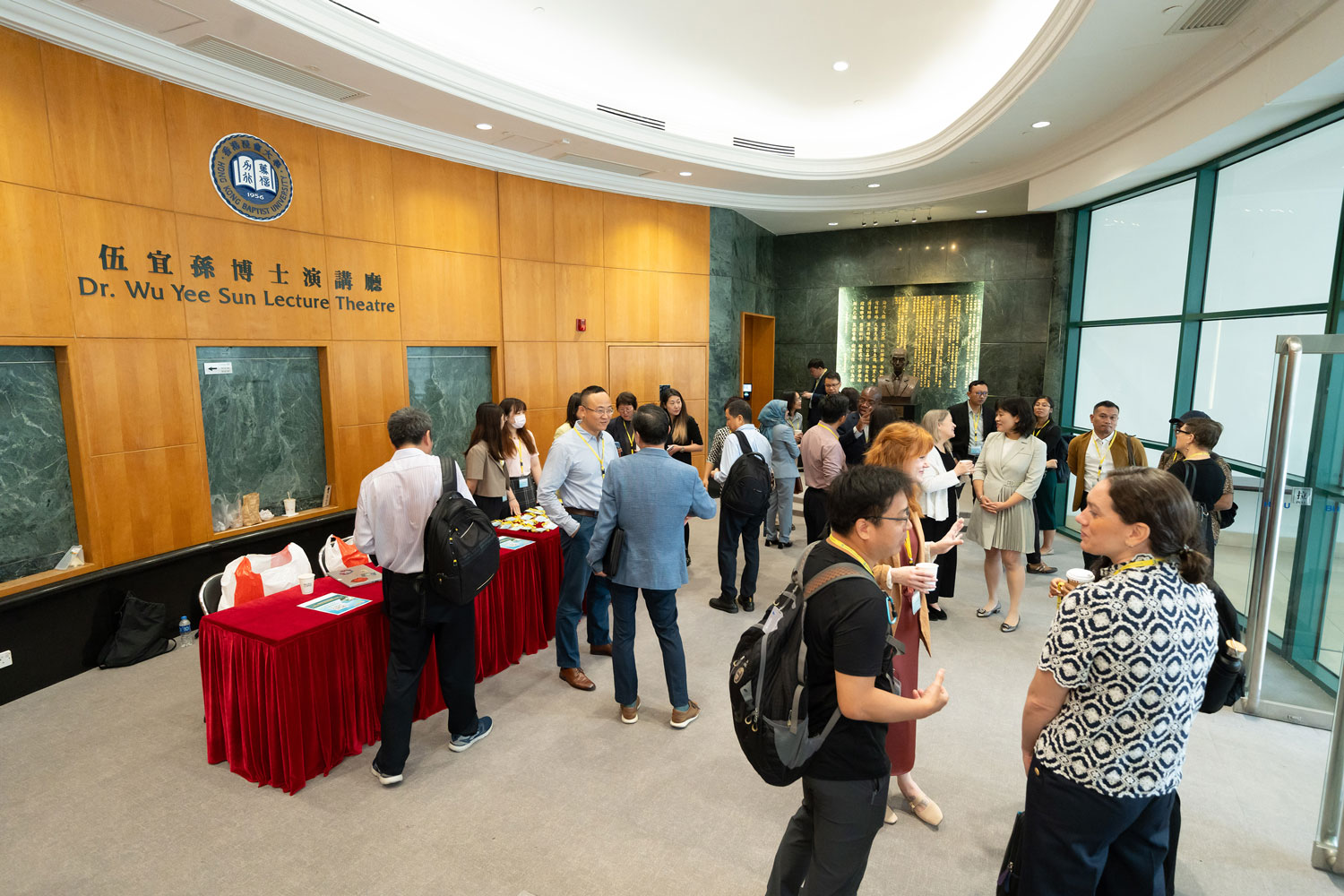CSDS Workshop
HKBU School of Business Workshop Explores China’s Role in Global Governance and Sustainable Finance
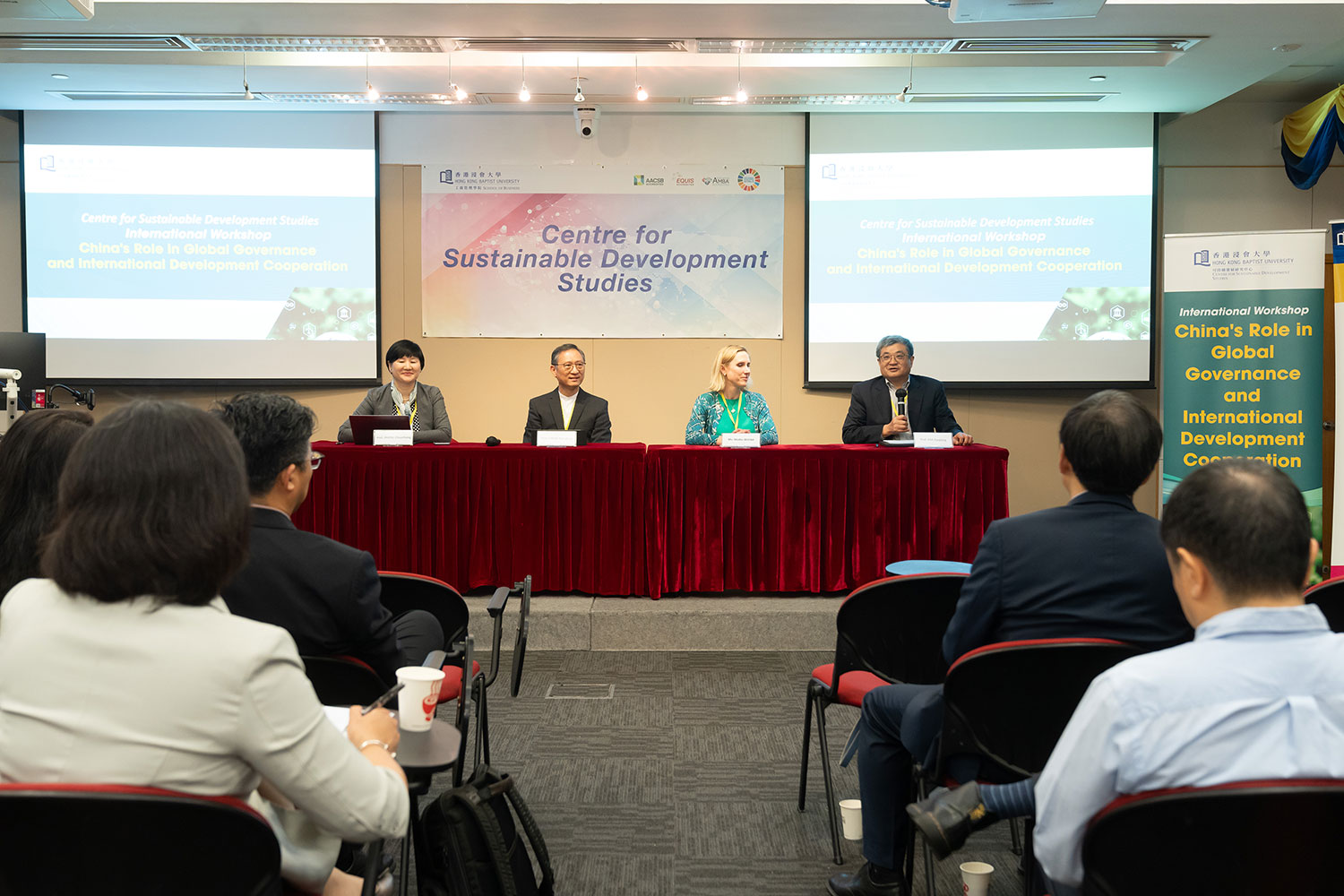

The Centre for Sustainable Development Studies (CSDS) of the HKBU School of Business hosted a comprehensive workshop titled “China’s Role in Global Governance and International Development Cooperation” on 2nd April, 2024. This event convened over 80 participants, including academics and representatives from think tanks and NGOs, to foster knowledge exchange.
Moderated by Ms. Mattie BEKINK, China Director of the Ford Foundation, the inaugural session titled “Fireside Chat on China’s Role in International Development Cooperation” was a meeting of minds featuring Prof. ZHA Daojiong from Peking University, Prof. ZHANG Chuanhong from China Agriculture University, and Prof. Yuk-Shing CHENG, the Interim Dean of the School of Business and Director of the CSDS.
Diving into the heart of the matter, Prof. ZHA underscored the necessity of understanding China’s unique stance in international development cooperation. He brought to light the differences in the interpretation of the term “development” between China and the West, a divergence rooted in their respective cultural and historical backdrops. With reference to the Chinese philosophy of “天下大同” (the world as one family), he suggested that all nations, despite their cultural variances, share certain goals such as sustainability and efficient resource allocation.
Shifting from concepts to real cases, Prof. ZHANG presented her study on “Post-colonial Perspective on China-Africa Development Knowledge Encounter”. She addressed the divergence in knowledge caused by Africa’s colonial history and advocated for a shift in China’s mindset in international development cooperation. While refuting the debt-trap narrative about China’s overseas strategy, she recommended a blend of soft power and infrastructure to build strong relationships with Africans.
From a wider perspective, Prof. CHENG highlighted China’s positioning of its international development cooperation as a South-South cooperation. Primarily offering development loans rather than aids, China’s overseas strategy has sparked discussions on debt sustainability. Although China's weak institution in managing overseas projects poses financial and ESG risks, Prof. CHENG noted the substantial efforts of the government to address these challenges, including the establishment of monitoring agencies and outsourcing risk management tasks to international financial institutions.
The workshop seamlessly transitioned into its second session, a panel discussion centered around “Sustainable Finance Against the Backdrop of Global Economic Governance: China and Asia Prospects”. The panel boasted a lineup of thought leaders in the field: Dr. BEI Duoguang, Chinese Academy of Financial Inclusion, Prof. CHIU Tzu Kuan, Shanghai Jiaotong University, Prof. LIANG Hao, Singapore Management University, Ms. Maud SAVARY-MORNET, Global Impact Investing Network HK, Prof. ZHANG Bohui, The Chinese University of Hong Kong, Shenzhen.
The session began by discussing the key features of sustainable finance development in China and Asia, along with its future prospects. Dr. BEI noted that China has seen a significant surge in green finance, primarily driven by government incentives encouraging banks to issue green loans and invest in green bonds for large-scale projects. Despite these advancements, challenges remain for small and medium-sized enterprises (SMEs) and poor families, who struggle to benefit from these policies.
Moving forward, Prof. CHIU highlighted the unique aspects of sustainable finance in Asia. She considered concepts of sustainability are deeply rooted in Confucianism and permeate various aspects of daily life. According to Prof. CHIU, although sustainable finance concepts are general, their application is highly specific and depends on regional challenges.
In a related vein, Prof. LIANG identified two key areas for sustainable finance in Asia. The first is transitional finance, which aids “brown” firms in shifting towards greener practices. This involves creating transition pathways and technology roadmaps. The second area is the intersection of biodiversity, nature, and finance. This includes investments to reduce impact on nature and biodiversity, such as the “blue carbon” - carbon captured by coastal ecosystems like mangroves and seagrasses.
Turning the attention to impact investing, Ms. SAVARY-MORNET mentioned the significant increase in impact investment allocation in Asia, with a more than 20% rise over the past five years. This trend reflects a strong focus on local impact and the recognition of abundant opportunities within the region. Investors are looking to further increase their allocation to Asia, with over 40% of investors intending to explore additional opportunities in Asia.
Wrapping up the discussion, Prof. ZHANG, highlighted three keywords - fast, imbalance, and banking. The “fast” aspect referred to the rapid growth of sustainable finance in specific areas such as green loans, green bonds, ESG funds in the secondary market, and ESG-based wealth management products. Yet, notable “imbalance” across these areas can be observed - the green loan market being the largest in the world, but the green bond market declining. Prof. ZHANG underscored the crucial role of “banks” in implementing sustainable financial concepts.
Established in July 2022, CSDS focuses on how institutions, policies, and practices affect the achievement of selected sustainable development goals (SDGs) in global and local contexts. It also facilitates the organisation of educational activities related to sustainable development in collaboration with community partners. Visit the CSDS website for more details.
